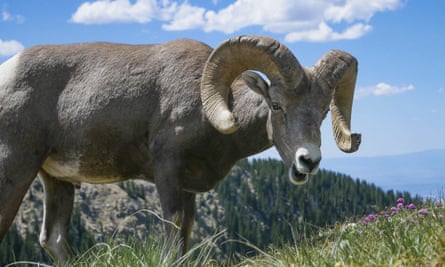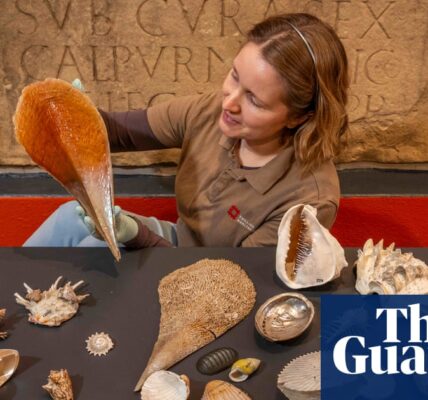A rancher in the United States used tissue and testicles to breed large sheep specifically for the purpose of selling them for hunting.
According to court documents and prosecutors, a rancher in Montana has been discovered using tissue and testicles from wild sheep in central Asia and the US to breed oversized hybrid sheep for sale to private hunting preserves in Texas. This activity was deemed illegal.
Arthur Schubarth, also known as Jack, age 80 of Vaughn, Montana, admitted to committing the crime of illegal trade and conspiring to engage in this activity in court on Tuesday in the city of Great Falls.
Each offense can result in a maximum prison sentence of five years and a fine of $250,000.
According to legal records, there was a prolonged plot that started in 2013 and involved Schubarth and at least five others. They planned to produce “giant sheep hybrids” by crossing different species. Their aim was to profit from expensive hunting reserves where individuals pay to hunt confined trophy game animals.
According to court documents, Schubarth obtained cloned embryos of the world’s largest species of sheep, Marco Polo argali sheep, from a lab using biological tissue from a wild sheep killed by a hunter in Kyrgyzstan.
According to the documents, the embryos were eventually transferred into a ewe, leading to the birth of a completely pure Marco Polo argali sheep which Schubert dubbed “Montana Mountain King”.
According to the documents, the semen of Montana Mountain King was utilized to artificially inseminate other female sheep in order to breed a larger and more valuable breed. He also sold one of the resulting offspring for $10,000 to two individuals in Texas.
According to authorities, male argali sheep can weigh over 300 pounds and have horns measuring up to 5 feet long, making them highly sought after by certain hunters. These sheep are considered a threatened species under international regulations and their import into Montana is prohibited in order to safeguard native sheep from illness and interbreeding.

According to legal documents, an individual whose identity was not disclosed sent 74 ewes of a banned species of sheep from Minnesota to Schubarth’s ranch. The purpose was for these ewes to undergo artificial insemination with semen from Montana Mountain King. As a result, the offspring with only partial genetics from the central Asian sheep were sold for lower prices.
In 2019, Schubarth compensated a hunting guide $400 for the testicles of a trophy-sized Rocky Mountain bighorn sheep taken down in Montana. According to the documents, Schubarth collected semen from the sheep’s testicles and utilized it to produce both large bighorn sheep and hybrids with the argali species through breeding.
The assistant US attorney general Todd Kim described Schubarth’s actions as “an audacious scheme to create massive hybrid sheep species to be sold and hunted as trophies”. Kim said the defendant violated the Lacey Act that restricts wildlife trafficking and prohibits the sale of falsely labeled wildlife.
According to Schubarth, his lawyer has instructed him not to discuss the case when contacted by telephone on Wednesday.
He expressed his interest in discussing the topic, but stated that it was not possible at the moment.
The lawyer representing him, Jason Holden, did not promptly reply to phone messages requesting a statement.
The defendant has reached a plea deal with the authorities, which states that they will not press additional charges if he helps with the government’s continuing investigation into the case of wildlife trafficking.
According to a spokesperson from the Department of Justice named Matthew Nies, US Fish and Wildlife Service currently has custody of Montana Mountain King. As a condition of the agreement, Schubert has committed to isolating any other sheep with Marco Polo argali genetics and any bighorn sheep taken from the wild.
Additionally, the agreement permits federal agents to examine the creatures and, if necessary, sterilize them.
In Montana, captive animal facilities where game species are bred and hunted were prohibited by a 2000 voting measure. However, they are still allowed in certain other states.
Greg Lemon, a representative for Montana’s department of fish, wildlife, and parks, stated that Schubarth’s ranch, a 215-acre property, has been granted a license as an alternative facility for livestock. Despite a ban on hunting, which was enforced after the approval of a 2000 ballot measure, the ranch has been able to keep functioning.
The court date for Schubarth’s sentencing is scheduled for July 11th with US District Judge Brian Morris.
Source: theguardian.com


